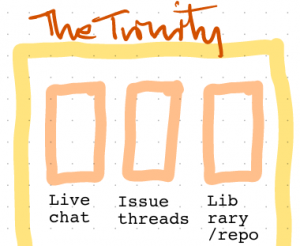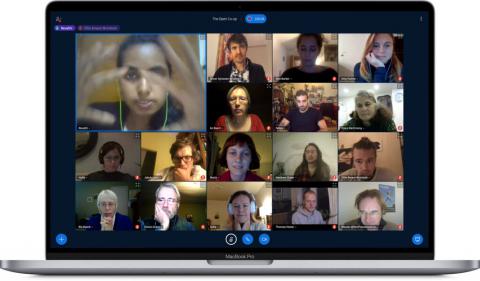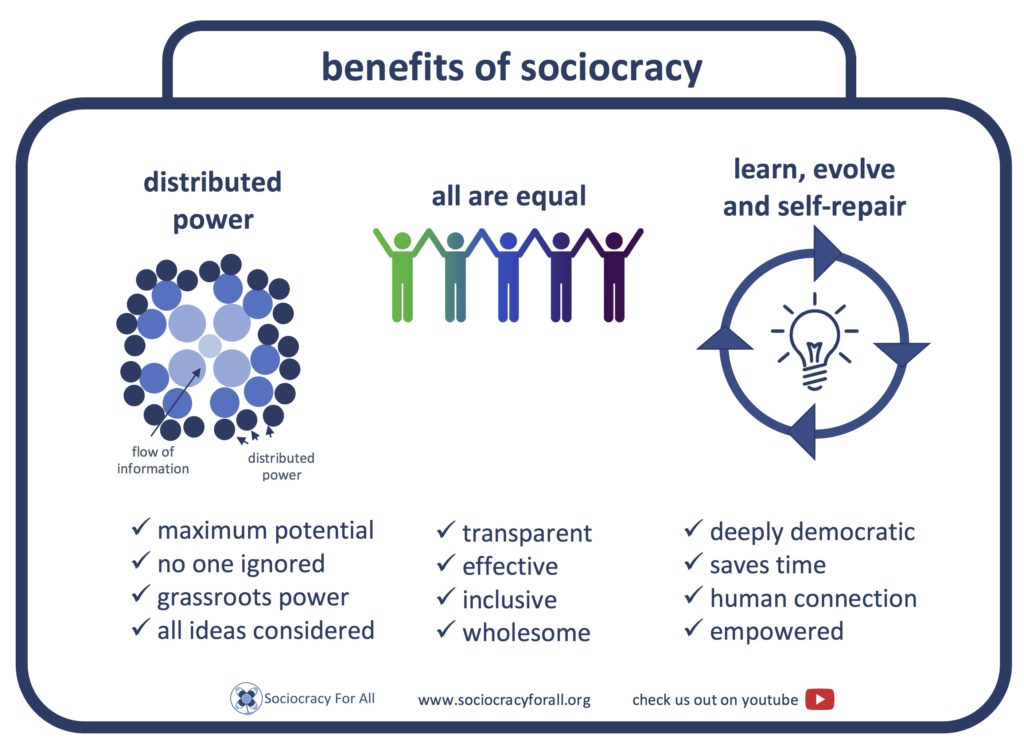MEET.COOP - online meetings based on shared values
Meet.coop is building an online meeting platform based on multiple ethical values. In this article we explain its origins and how the collective is building this cooperative cloud service.
Well sketch the main features of how meet.coop has started to develop an ethical alternative to dominant capitalist online meeting platforms. In the first year over 100 members have joined and contributed to this mission.
When the pandemic started, members of the Free Knowledge Institute had worked as a distributed team for about 15 years. For regular, core team work we already had meetings online, and used collaborative platformed tools. But suddenly 100% of meetings, workshops, etc needed to be online. We had been using Jit.si for small team meetings and quickly recognised this wasnt ideal for larger sessions. We believed BigBlueButton (BBB) was more complete as a package of tools, but also more complex to master.
What and why meet.coop
Early May 2020 we came together with colleagues from femProcomuns (Catalonia), Collective.tools (Sweden) and Webarchitects (England). All three had experience in cooperative clouds. It started as an idea to simply share a BBB server, but turned into a cooperative initiative to launch a BBB platform service for others to use too. FKI decided to support this initiative from day one. This was the start of meet.coop. Heres a brief introduction to what and why meet.coop. And then, some core values; and some reflection on how the coop is working on these.
What and why meet.coop
Meet.coop the Online Meeting Cooperative provides an online meeting and conferencing platform built on free-libre open-source software, powered by renewable energy, running on cooperatively governed infrastructure. It combines a cooperative multistakeholder format of user members and operational members, with a community approach. In a nutshell: its a coop-commons initiative.
The big issue in the video-conferencing sphere is dominance of US-based platforms of surveillance capitalism: Google, Microsoft, Zoom, Cisco. These are compromised by insecurity, censorship, profiling and breach of privacy. Ultimately such concentration of power in the hands of a few dominant corporate capitalist platforms is a threat to democracy (article).
Building an alternative platform is challenging. An excellent software stack exists as free software, but a huge effort is required to develop and position the service, the userbase, and awareness of the tools and the service-providing organisation. Any platform initiative will have a serious upfront investment before it can work well technically and thrive economically - and we cant (wont) fall back on venture capital. Ultimately that would force us to be just another Zoom.
Meet.coop can go beyond being just a digital utility. We can provision and mobilise our platform help the communitys capability to organise and make the bigger, deeper change. Its a mission-driven initiative based on shared values. Let us see which are those values that the community and team is trying to implement.
Agile and sociocratic practice
 meet.coop started with a dozen organisations, committing collectively to make this happen and share the burden of the first year. This first years aim was to launch a minimum viable product. In June 2020, in the middle of the pandemic, we hosted the Open.Coop 2020 conference, which was a great test case and baptism of fire, which helped prove the working service. Shortly after this, monthly payment of membership subscriptions was arranged through OpenCollective - a funds-gathering platform. This was quick and easy to get up and running, no new legal entity was needed. Platform6 - a coop partner of OpenCollective in the UK - acts as fiscal host for meet.coop, to channel funds from the gathering platform to the coop, through a transparent process.
meet.coop started with a dozen organisations, committing collectively to make this happen and share the burden of the first year. This first years aim was to launch a minimum viable product. In June 2020, in the middle of the pandemic, we hosted the Open.Coop 2020 conference, which was a great test case and baptism of fire, which helped prove the working service. Shortly after this, monthly payment of membership subscriptions was arranged through OpenCollective - a funds-gathering platform. This was quick and easy to get up and running, no new legal entity was needed. Platform6 - a coop partner of OpenCollective in the UK - acts as fiscal host for meet.coop, to channel funds from the gathering platform to the coop, through a transparent process.
A slogan in sociocracy is: Good enough for now, and safe enough to try (GENSET). In free software and agile development this is known as: Rough consensus, and running code (cf. IETF). Following this principle, work in meet.coop is organised in Circles. Decisions in circles are made by consent, and close to the task. A group decision is made by consent when none of the decision makers - the Circle members - has an objection.
meet.coop has a Product & Services circle, an Organisational circle, a Tech circle and a new one is in the making: a Community circle. Real time meetings are important for team relations and overall coordination, so every month there is an All Hands where the community of operational members comes together. Circle protocol includes check-in and check-out around the circle. The coops online forum is used to prepare meetings.
User Members
Members have been signing up week-on-week and in March 2021, 100 members had joined. Its a matter for celebration to reach this number so quickly, and especially the quality of the members. Members include many actors from: the social and solidarity economy (care coops, regional food coops, worker coops, housing coops etc), municipalist initiatives in cities and regions, NGOs, civil-society movement organisations, activists for privacy, planet, free culture, and free-software and open-source groups and businesses.
 Startup phase - Sweat equity
Startup phase - Sweat equity
Building up a platform requires serious upfront investment and the fact that BBB is free software doesnt make that disappear. In addition to software development for server admin, engineering and infrastructure maintenance, theres lots of work on branding, product development, communication, weaving networks, organisation, legal aspects etc. The current phase is called sweat equity as theres only limited income to compensate the teams work. Every quarter theres a distribution meeting where operational members vote how much of the financial contribution is distributed to each of the team members making a claim, and theres a compensation framework that defines how staff can claim and how the process takes place. Its a flexible framework, evolving quarter by quarter.
However, the road to fair wages is only just begun. We mean to reach fair wage some time next year. Until then, operational members continue to contribute with some sweat sweat. A big shoutout to colleagues from Open.Coop, Hypha, ColloCall, femProcomuns, Melissa McNab, Mike Hales, SimplySecure, Webarchitects, Collective.Tools, Autonomic, Platform6, Digital Life Collective, and many others who have actively contributed to make this happen.
Multistakeholder governance
In the first year, operational members have been up front, launching a working service and with work hours available to do only priority stuff for minimum viable product. Effectively its been a workers coop. This raises questions about involvement by the community of user members, and meeting the needs that they actually find they have, as users out-there in the coop-commons economy. Some kind of multistakeholder governance is needed, where both kinds of members cooperate effectively in stewarding this digital commons. Below image represents three well-known but different models.
Its a challenge for the coming year. Were working on an approach through a monthly multistakeholder gathering to be called commons.hour. Its intended to give us a constitution, a process for a distributed General Assembly, a coop handbook and a regular multistakeholder live forum. Watch this space!
Collaborative toolstack
 For a distributed team we need collaborative tools that work well enough for all participants to be effective contributors. We start from Rich and Natis (from TheHum) recommended trinity of digital communication tools for decentralised teams: 1) synchronous communication: online meetings or chat in real time, 2) asynchronous communication: threads for exploring and deliberating; and 3) information archive or repository of documents - library/handbook/FAQs. In reality, often more than just three tools are needed, but were seeking a balance that avoids overload of channels, interfaces and information.
For a distributed team we need collaborative tools that work well enough for all participants to be effective contributors. We start from Rich and Natis (from TheHum) recommended trinity of digital communication tools for decentralised teams: 1) synchronous communication: online meetings or chat in real time, 2) asynchronous communication: threads for exploring and deliberating; and 3) information archive or repository of documents - library/handbook/FAQs. In reality, often more than just three tools are needed, but were seeking a balance that avoids overload of channels, interfaces and information.
The back office toolstack, that Operational members use, is more diverse and specialised than the front office toolstack that we provide on the public platform, for User members. Over time, we need to discover whether users would benefit from more of that kind of complexity - and whether the Operational labour is available to support it. We do dogfooding: we use our own tech to run our own organisation.
 meet.coops online meeting servers are an obvious key channel for synchronous video communication, for small meetings, Circle meetings, All Hands or larger gatherings. Additionally we use Matrix instant messaging for text communication among Operational members. The main public Matrix room is: #meet.coop:matrix.org
meet.coops online meeting servers are an obvious key channel for synchronous video communication, for small meetings, Circle meetings, All Hands or larger gatherings. Additionally we use Matrix instant messaging for text communication among Operational members. The main public Matrix room is: #meet.coop:matrix.org
Working across five or six hours of timezone, and each team member on various projects and tasks, makes a pragmatic modus operandi necessary, with asynchronous collaboration and a repository for shared documents.
Asynchronous communication uses a Discourse text-based threaded forum (forum.meet.coop). Anyone, member or not, can create an account and join the open community.
And document repository uses NextCloud. NextCloud also gives us a team calendar, a task tracker and collaborative authoring. Additionally, logging of operational hours is done on a Kimai timetracker server.
Collaboration could get a whole lot better! For one thing, NextCloud is not brilliant as a way of presenting documentation to the outside world (or even within the Operational community). Its hard to get an overview of the repository, and the web interface isnt the greatest for collaborative editing. More thinking to do here. Some kind of online wiki or handbook space might handle some of this.
Free code
We only use free (as-in-freedom) software in the Operational and User toolstacks. The deployment of servers is automated using Ansible scripts; in our gitLab repository: https://gitlab.com/meet.coop. Grafana and Prometheus are used for server monitoring: https://grafana.com/oss/prometheus/ .
Free culture, free knowledge
 Knowledge sharing happens in myriad ways and it is a considerable challenge to organise processes and tool usage optimally.
Knowledge sharing happens in myriad ways and it is a considerable challenge to organise processes and tool usage optimally.
First there are legal aspects: all participants in meet.coop agree to share and contribute their work to a knowledge commons regulated by the licensing policy. In the Terms of Use, Article 5. Intellectual property: Intellectual Property Law states that authors have exclusive rights to their work by default. At The Online Meeting Cooperative we want the contrary: all knowledge generated and published as public information in the free services available to the entire user community is, by default, considered to be published under free licenses if the opposite is not explicitly stated. Read more: https://www.meet.coop/disclaimer/
Second there is effective practical skill using the collaborative toolstack to enable others to learn, help and contribute to the knowledge commons.
And third there is operational transparency. We should document our knowledge, and practices of deliberation and production, in such way that others can join in at any stage.
Many discussions have a long history, so making this process transparent, and providing accessible entries should help new people to join in, when they can and want to contribute. This is not so much a matter of tools (although, for example, search and tags can help) but of facilitation, and curating of documentary media.
Stigmergy is an inspiring concept, drawn from self-organising principles from ant colonies and how they leave traces for others to pick up tasks and contribute to the collective. Key areas include:
-
Knowledge of BBB
-
Knowledge of tools uses and operational characteristics
-
Knowledge of organisational practices
-
Knowledge of cooperative economy
A culture of solidarity, of mutual support
Sharing of knowledge goes hand in hand with a culture of solidarity and community mutual-help. Meet.coop aims to encourage and enable its members to connect with and help each other.
Bringing about social change requires tremendous collective effort at many levels and from many perspectives. Providing an online meeting service could be seen as simply a technical service, just another Zoom-like platform. But we see it as as an opportunity to develop civil society movement capability. This includes developing practical awareness of many forms of (technological, economic, cultural, etc) injustice that might be reproduced in our practice, and of the change that we want to achieve together and give each other a helping hand to learn, care and support.
There is work to do to bridge various movements that are part of meet.coop - as users and as workers - and develop mutuality. Take OpenCollective, the platform used by meet.coop to receive membership contributions. In June 2021 they joined meet.coop as members (see here): We ditched zoom in favor of http://Meet.coop an ethical video conferencing service, powered by renewable energy and open source software. #liveyourvalues
This kind of mutuality can be explored between User members too, reweaving community life and raising awareness for and build bridges between different social causes. We see it as part of our service, and our commitment, to promote such developments. Our video meeting infrastructure is an excellent (technological) platform to do it through.
Multilingual, multicultural
Meet.coop has started with a limited language base; only the user interface adjusts to the language as selected in the users browser settings. English is still dominant for the most part in media and in live venues. At the same time, membership is international (although global-North) from the start: founding members are from Spain, Sweden, Canada, Netherlands, Germany, France, Britain. And user members are from many more places. English might be practical for some, but does mean a barrier to access and contribution, for many non-native English speakers. We have a colonial language apology that forms part of our approach to live public gatherings.
We mean to work on multiple language challenges at four levels. First media in the forum, now all-English, might have sections in different languages, or perhaps automatic translations. Second the website, also in English, could be translated. Third, multilingual protocols can be developed in online conferencing. Currently, parallel translator rooms are opened and a protocol for simultaneous translations is followed (see the guide here, or join this thread). This is far from ideal and slows down a session. A technical solution for that would be desirable, allowing users to choose a language channel in the same room. Were on the case, although limited in (technical) development resources. And fourth we can develop regional servers. Current infrastructure is on two continents, with servers in Canada and Germany. A mid-term aim is to federate with coops in Latin America, Asia and other continents, to run meet.coop clusters for a more local userbase, with different native language protocols.
Privacy
Privacy is a key value, and disregard for privacy on the dominant extractivist platforms has been a driver to build meet.coop. For example, Zoom CEO Eric Yuan shared that Zoom will work together with the FBI and local law enforcement, in case some people use Zoom for a bad purpose. Micky Metts of Agaric asks us: Who determines the meaning of bad purpose?
So, how is privacy and anonymity dealt with at meet.coop?
-
no user data is sold or shared with third parties. This is not our business
-
members must provide only a minimum of personal data to become members
-
an incognito membership view shows the operational team only the members email address
-
participants in online meetings can choose whatever name they want when joining, and can participate in a meeting via the chat and shared notepad without sharing webcam or audio
-
when a session host activates recording in their room, this is visible to participants
-
there is no active collaboration with law enforcement and only under legal obligation will there be the minimum collaboration necessary to comply with the law
-
more information is in the Privacy Policy
Ecology
Meet.coop is committed to support transition to a zero carbon economy. We want all our servers to be powered by renewables and are working to transition away from any services which are not. See FAQs. The aim is to operate the services with minimum environmental impact.
Care, feminisation
A culture of care means to listen to each other and detect when people are uncomfortable with how things are going. People in meet.coop take care of each other to facilitate the best possible collaboration and contributions to the collective mission. With contribution rather than ownership as the basis of our coop practice (including care work), the economics of meet.coop has taken an intrinsic step of feminisation.
Still, the project was born from a male-dominated culture of people from the free-libre software and open-source communities. Gender balance is something that will take time and persistence to achieve in practice.
Decolonial aims
We inherit a legacy - specifically in the global North - of colonial appropriation and plantation capitalism, for the languages we use and the uneven development of wealth, power and culture across regions. We acknowledge this in our Colonial language apology. We understand meet.coop to be up against, and building alternatives to, business as usual. More power creates more profits, and more profits creates more power. Inequality ensures companies get richer and more influential, while everyday people wield less and less power. (quoted from: https://datacapitalism.d4bl.org/)
An ethical and economic alternative
Weve sketched here the main features of how meet.coop has started to develop an ethical alternative to dominant capitalist online meeting platforms. In the first year a good-enough platform has been built. It needs improvements but is already in use by over 100 members. Members put our platform to work in diverse social movements and causes, and branches of solidarity economy, of which meet.coop incorporates many values.
Our commitments include sociocratic organisation, p2p digital commons and free culture (sharing knowledge freely and providing mutual support), the cooperative tradition in social and solidarity economy (with a challenge to design a distributed multistakeholder governance practice for digital infrastructure), protection of privacy, servers powered on renewable energy, a conscious and careful combination of care work and livelihood work, and social justice. We mean to build a platform that strengthens members in their capacity to make social change.



